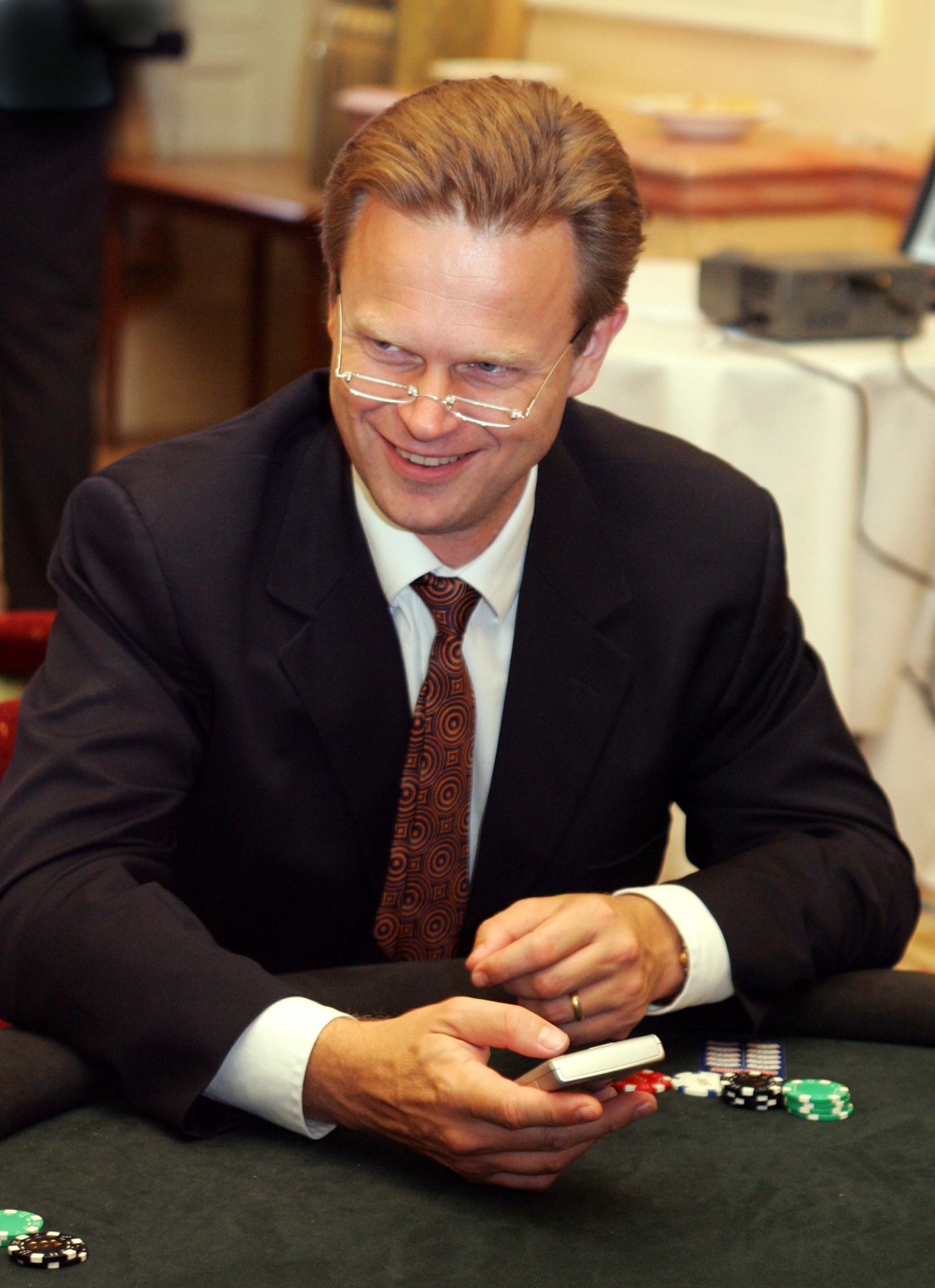Interview: Cecure's Peter Karsten on the rise of mobile gambling
Will punters play real money poker on their phones? One man is betting they will

Card games have been popular on phones since the early days of mobile gaming, but actually playing against other people over the network – for real money – has only got started fairly recently.
Cecure Gaming is one of the companies hoping to make multiplayer mobile poker a moneyspinner, with one of its investors being the World Poker Tour.
The company recently released Aces Royal, which lets up to six players per table gamble real money against each other. We talked to CEO Peter Karsten about the game, and the wider issues around mobile gambling.
What's the idea behind Aces Royal, and mobile poker in general?People want to personalise their phones, so our idea was to build a really good entertainment service that's about being connected to other people, while spicing things up by involving cash. So you gamble, not with a view to gambling your house or big money, but just the sort of sums you might bet against friends. Enough that if you lose, I could rib you like there's no tomorrow, but probably buy you a pint with my winnings.
We don't want to be involved with heavy gambling. We work with big operators like Vodafone, who want a connected poker game, but they want it to be risque, not risky.
How easy (or hard) is it to get connected poker games working over the network?There have certainly been challenges. We went live with our first multiplayer poker game back in 2004, but then, if you raised or bet, it would take between six and 16 seconds for other people at the table to see it. If you had five to eight people playing, a single round of betting could take 3-4 minutes! It didn't work on mobile.
In the last two and a half years, we've spent around £6 million enhancing the product, and in the third generation product we launched about a month ago, the speed is now around 1.8-2 seconds, no matter where the player is: the UK, Finland, Kuala Lumpur... You can have half a dozen people at the table and play a complete hand in around 60 seconds, including multiple rounds of betting. That's much more workable.
Do people play mobile poker in the same way they play on the Internet?We do see real human behavioural differences between mobile and online poker players, which is why the service needs to be different, and the expectations you place on fellow players must be different.
In the mobile environment, you must accept that people receive phone calls while playing. You can't get upset, it just happens! Or people arrive at their bus stop or train station, and have to shut the application down. So if people get up and go suddenly, or take a break halfway through a hand, you just have to give each other that flexibility.
Are there any advantages of mobile gambling over online?If your mindset is mobile, it's far superior to playing on the PC. You can walk around while playing, rather than be tethered to a desk. So you're not seen as some kind of gambling junkie who sits there and grinds in front of a PC. You can walk around, play a couple of hands, have a coffee, play another couple of hands...
It's the untethered aspect that appeals. Plus the fact that you can exit and turn off the phone if you want. It's that lack of obligation that people seem to like.
So people are betting more casually?I think so: we're certainly trying to position it that way. We're looking at smaller bets, and a limit on how much you can deposit per day or week. We don't want people losing lots of money.
We work with some of the biggest brands in the world, like T-Mobile and Vodafone. Really big companies. If we take £10,000 from, say, a single-parent in Uxbridge, then the media would have a field day.
What else are you doing to be 'socially responsible'?We put restrictions on how quickly people can deposit money, and we block people if they're spending too much. We can dive in if we see people losing money too quickly, because we don't want those situations.
We work with the NSPCC to ensure that no under 18s can access the services, and we also use credit cards for verification, as well as the same systems as the major banks – so we check people are over 18 by looking up birth certificates, on the DVLA, on credit card blacklists... about 12 databases in the UK alone.
There will be rogue companies in the mobile gambling space, but we're one of the dull and boring trustworthy ones!
So how big will mobile gambling be in the future?I believe it will be huge. If every single person in the UK has a mobile phone, those who are into a little bit of gambling will use their mobile to do it. I don't mean big stakes either.
It might take another two years to become mainstream, but it could happen this year. We're seeing tremendous uptake of our service already. Sometimes you get lots of early adopters and then a chasm over to getting mass-market uptake. But will people gamble using their mobile phones? Of course they will.
